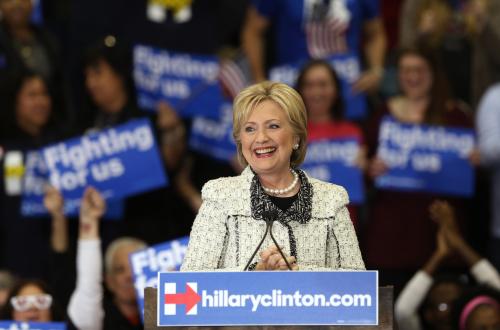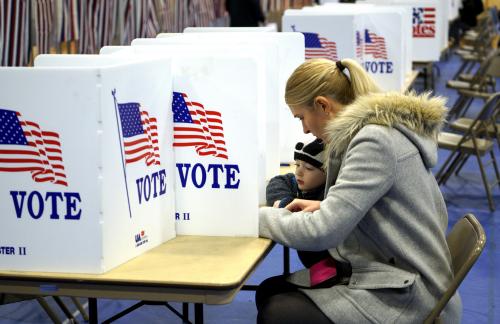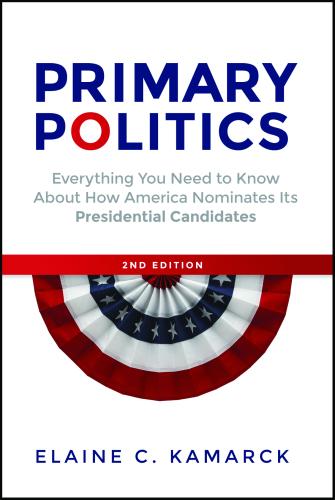I think the most telling line in Hillary Clinton’s book on the 2016 election, What Happened, is the following: “That was my problem with many voters: I skipped the venting and went straight to the solving.”
In this very personal and honest book we see Hillary’s strength and weakness; she is someone so interested in solving problems that she skips right past the emotion that drives so many voters. In one very interesting passage on her primary challenge from Bernie Sanders she writes, “He [Bernie] didn’t seem to mind if his math didn’t add up or if his plans had no prayer of passing Congress and becoming law.[…]That left me to play the unenviable role of spoilsport schoolmarm.” She is clearly angry that people criticized her for being too prepared for the debates, since she is a person who sees virtue in careful preparation. She admits to being “… a lifelong fan of school supplies, [who] fussed over the tabs and dividers and armed myself with a bouquet of highlighters in every color.”
Even in a book about the election she can’t stop writing about policy—an entire chapter is devoted to gun control. She frequently digresses: “Since the election, I’ve been thinking a lot about how we can do a better job of pushing policy back into our politics.” In the midst of explaining a major gaffe she has to remind us that “I got to work developing the detailed plan to invest $30 billion in revitalizing coal communities.”
Even though she knows her obsession with policy is not widely shared, she simply can’t help herself. Before launching into a riff on how to create jobs she practically apologizes to the reader and says, “Bear with me here, because I have a lot to say about this.”
Clinton makes a fair point that when she’s in a job, people really like her. As a U.S. Senator from New York she had friends and admirers among her Democratic and Republican colleagues alike. As Secretary of State she was widely admired. The only person who didn’t like her was Vladimir Putin—a mark of pride to most people. But the very traits that made her one of the world’s most admired people before she ran seemed to undermine her as a candidate.
Candidates like Hillary—good at the business of government, good at making friends in government and good at getting things done—are at a disadvantage in the modern presidential election system where the people who can judge these qualities best have little or no say in the nomination. In most parliamentary systems (the most popular form of democratic government in the world) the party leader is chosen by his or her peers and then becomes prime minister. Reflecting on those systems Hillary writes; “I think all this may help explain why women leaders around the world tend to rise higher in Parliamentary systems, rather than presidential ones like ours. Prime ministers are chosen by their colleagues—people they’ve worked with day in and day out, who’ve seen firsthand their talents and competence. It’s a system designed to reward women’s skill at building relationships, which requires emotional labor.” She goes on to say; “Presidential systems aren’t like that. They reward different talents: speaking to large crowds, looking commanding on camera, dominating in debates, galvanizing mass movements, and in America, raising a billion dollars.”
People who knew Hillary Clinton routinely said “great president, lousy candidate.” A fact she readily admits, writing—“I’m not the most natural politician.” Trump, on the other hand, was a great candidate. Even Hillary admits that it was hard for her to take her eyes off him when she watched the two of them on television. But, as even his supporters are coming to realize, he is failing at the job of governing.
In today’s presidential election system, the ability to govern has taken a back seat to the ability to get attention. This is the only system in our society where there is no review by peers. If you were shopping for a brain surgeon you would want someone who other brain surgeons said was qualified. But when we are shopping for a president, the opinion of those who have governed is no longer part of the process. Even the small number of super-delegates at the Democratic Convention was perceived as an outrage. With the exception of the earliest days of our nation, presidential candidates have never been nominated by legislative caucus. But for almost two hundred years they have been nominated by conventions composed of power brokers. There were plenty of problems with that system, but have we gone too far? Perhaps in the future both parties can figure out how to nominate candidates who can govern.
Elaine C. Kamarck is a Senior Fellow at the Brookings Institution and author of Primary Politics: Everything You Need to Know about How America Nominates Its Presidential Candidates. She is a superdelegate to the Democratic convention.









Commentary
Why Hillary Clinton lost
September 20, 2017